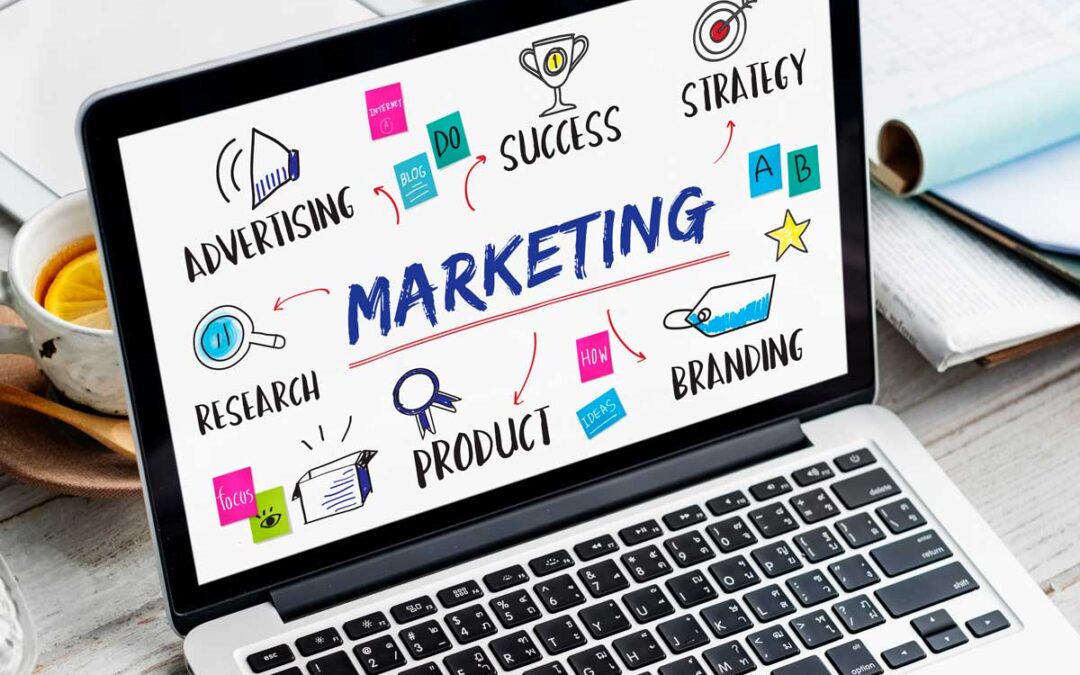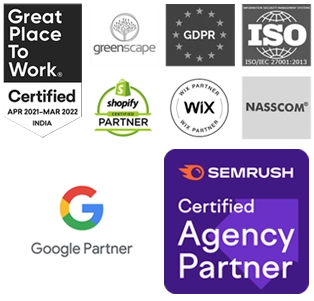Remember when Pepsi released that Kendall Jenner ad in 2017? It was a classic case of tone-deaf marketing, as the ad seemed to trivialise social justice issues and sparked a massive backlash on social media. Unfortunately, even big brands like Pepsi can misread their audience and damage trust with poorly considered messaging. When a marketing campaign comes across as uninformed, insensitive, and even offensive to the people, it is called tone-deaf marketing.
Big names like H&M, Nivea, and Heineken have also all been involved in tone-deaf marketing. In today’s world, where social media can amplify negative reactions, tone-deaf marketing can have a significant impact on a brand’s reputation. That’s why it’s crucial to understand the importance of sensitivity in advertising and defeat tone-deaf marketing that could offend or alienate the target audience.
In this article, we’ll explore the negative effects of tone-deaf marketing, how to avoid it, and the importance of ethical and inclusive marketing strategies.
The Negative Effects of Tone-Deaf Marketing
Have you ever received an advertisement or sales pitch that was completely irrelevant to your needs or interests? Maybe it was trying to sell you a product or service that you had no use for, or it was promoting something that just didn’t appeal to you at all. This type of poor marketing doesn’t just harm your personal experience as a consumer – it can also do serious damage to a company’s brand reputation. Let’s see how.
Out-of-Touch Messaging
When a brand’s messaging is completely off-putting and irrelevant to the audience, it can make the brand seem out of touch and ignorant of its customers. Let’s say a business is promoting a service that would only be useful to a specific type of customer, but they’re targeting everyone and anyone with their ads and marketing. It is very likely that most people will see right through it and feel like the company doesn’t understand them at all.
Wasted Resources
A company is basically wasting its resources by marketing to the wrong audience. It can hurt not only its bottom line but also its overall reputation. If a business tries to sell something to people who have no interest in buying it, they’re essentially just throwing money away. This can lead to a lot of frustration and burnout for sales reps, as well as annoyance and frustration for potential customers who might feel like they’re being targeted for no reason.
Wasted SEO Efforts
Deaf-tone marketing can also harm a company’s SEO efforts. When a business is promoting content or products that don’t resonate with its target audience, people are less likely to click on their links or convert to their offers. This sends a signal to Google that the company’s website isn’t relevant to what people are looking for, which can hurt its search engine rankings and visibility.
By looking at the above-stated pointers, it is clear that deaf-tone marketing can have a major impact on the brand image. That is why it is essential to understand the importance of sensitivity in advertising and defeat deaf-tone marketing.
Examples of Deaf-Tone Marketing
When it comes to deaf-tone marketing, even big brands have been a part of it. Some of the famous instances in the history of deaf-tone marketing include H&M’s advertisement that featured a black child wearing a hoodie that read ‘Coolest Monkey in the Jungle’ and Nivea promoting the tagline ‘White is Purity’.
In this section, let us take a look at such examples of tone-deaf marketing briefly, where brands failed to read the mood in the room or acknowledge how their audience might feel.
Pepsi’s 2017 Protest Commercial
In 2017, Pepsi launched a highly controversial commercial featuring Kendall Jenner, which serves as a cautionary tale of what can go wrong when companies fail to understand their audience’s sentiments. The ad was meant to promote unity and peace, but instead, it caused widespread outrage and was seen as tone-deaf and insensitive.
The commercial showed Jenner as a model-turned-protester who hands a can of Pepsi to a police officer facing a crowd of demonstrators. The imagery was criticized for mimicking the Black Lives Matter movement and trivializing the struggles of marginalized communities. The ad was pulled down within 24 hours of its release, and Pepsi issued a public apology.
This commercial serves as a reminder of the importance of cultural sensitivity advertisement. It teaches brands to be mindful of the current social and political climate and to approach brand campaigns with sensitivity and empathy. This is a great example of what might happen if you ignore the importance of ethical and inclusive marketing strategies and understand how we can defeat deaf-tone marketing.
H&M’s 2018 ‘Coolest Monkey in the Jungle’ Hoodie Ad
In 2018, H&M came under fire for a now-infamous advertisement featuring a black child wearing a green hoodie emblazoned with the phrase “coolest monkey in the jungle”. The ad quickly drew widespread criticism on social media, with many accusing the company of racial insensitivity and implicit bias. The controversy was a clear example of deaf-tone marketing, where a brand fails to recognize the negative connotations or potential harm caused by its messaging.
The ad was a clear instance of tone-deafness on H&M’s part, as it was not difficult to foresee how a black child wearing a sweatshirt with a monkey reference could be interpreted as racially insensitive. The ad was widely viewed as offensive, especially in light of the history of dehumanizing comparisons of Black people to monkeys. The fact that the company had hired a diversity leader but still produced the ad was seen as particularly egregious.
In response to the backlash, H&M issued a public apology and took several steps to try to make amends. The company pledged to increase diversity in its workforce, and it cut ties with the marketing agency responsible for the ad.
However, the damage had already been done, and many consumers, especially in the Black community, continued to view the company with suspicion and distrust. This is a great example of what might happen if you ignore the importance of ethical and inclusive marketing strategies and understand how we can defeat deaf-tone marketing.
Nivea’s 2017 ‘White is Purity’ Ad
In 2017, Nivea released an ad campaign with the tagline “White is purity,” which quickly drew criticism for promoting white supremacy and being insensitive to people of colour. This ad campaign caused a global backlash, and many consumers vowed to boycott the brand. Nivea was forced to apologize and remove the ad from all channels. However, the damage to the brand’s reputation had already been done.
This incident highlights the importance of being mindful of the cultural, social, and political implications of marketing campaigns. Marketers need to be aware of the diverse perspectives of their target audience and avoid insensitive messaging that can alienate their customers. This is a great example of what might happen if you ignore the importance of ethical and inclusive marketing strategies and understand how we can defeat deaf-tone marketing.
Heineken’s 2018 “Lighter is Better” Ad
In 2018, Heineken’s “Lighter is Better” ad sparked controversy and was accused of using deaf-tone marketing tactics. The commercial featured a bartender sliding a bottle of Heineken Light past several black people before it finally landed in front of a light-skinned woman. The tagline “Sometimes lighter is better” appears on the screen. The ad was widely criticized as racially insensitive and offensive, suggesting that lighter-skinned people were somehow better than darker-skinned people.
Heineken issued a quick apology, stating that the ad was meant to be lighthearted and not intended to offend anyone. The company removed the ad from all its channels and promised to review its marketing processes to prevent similar incidents.
The “Lighter is Better” ad is a classic example of how deaf-tone marketing can backfire, causing a significant loss of trust and credibility with the target audience. Companies must always be aware of the cultural values and sensitivities of their audience and ensure that their messaging is respectful, inclusive, and relevant.
In this case, Heineken’s misstep was widely condemned, and it serves as a cautionary tale for other companies to be vigilant in their marketing and avoid such pitfalls. This is a great example of what might happen if you ignore the importance of ethical and inclusive marketing strategies and understand how we can defeat deaf-tone marketing.
How to Avoid Deaf-Tone Marketing?
Deaf-tone marketing can have devastating consequences for a brand. It can damage brand reputation, lead to boycotts, and ultimately affect the bottom line. However, with careful planning and consideration, it is possible to avoid tone-deaf marketing. Here are four tips to help brands steer clear of this marketing pitfall.
Conduct thorough market research:
Market research is a crucial step in any marketing campaign, but it’s especially important when trying to avoid tone-deaf marketing. Take the time to understand your target audience and their preferences. This can help you create campaigns that truly resonate with them.
For instance, if you’re targeting millennials, you might want to create campaigns that are more socially conscious, environmentally friendly, and tech-savvy. On the other hand, if you’re targeting baby boomers, you might want to focus on creating campaigns that are more traditional, family-oriented, and emphasize value for money.
Get input from diverse groups:
Diversity is key to avoiding tone-deaf marketing. By seeking input from people from different backgrounds and perspectives, you can create campaigns that are more inclusive and authentic. You might want to consider creating a focus group made up of people from different ethnicities, genders, ages, and socioeconomic backgrounds. Ask for their feedback on your campaigns, and use their insights to make your campaigns more inclusive.
Avoid stereotypes and cultural appropriation:
Stereotypes and cultural appropriation can be harmful and offensive, so it’s important to avoid them when creating marketing campaigns. For instance, if you’re creating a campaign for a product that is popular in a certain culture, it might be tempting to use cultural elements in your campaign.
However, you need to be careful not to appropriate the culture in a way that is insensitive or disrespectful. Instead, focus on celebrating diversity and showcasing authentic representations of different cultures.
Be mindful of current events and social issues:
Finally, it’s important to stay up-to-date on current events and social issues. This can help you avoid creating campaigns that are insensitive or out of touch with what’s happening in the world.
For instance, if there’s a natural disaster or a crisis in a certain region, you might want to avoid creating campaigns that use imagery or messaging that is inappropriate or insensitive. On the other hand, if there’s a social issue that is relevant to your brand or target audience, you might want to create campaigns that address it in a meaningful way.
Final Words
All in all, tone-deaf marketing can have serious negative effects on a company’s reputation, and it is crucial for brands to understand the importance of sensitivity in advertising and inclusivity in their campaigns. When a brand fails to read the mood in the room and acknowledge how its audience might feel, they risk alienating and offending potential customers, wasting resources and SEO efforts.
Examples of tone-deaf marketing from big brands like H&M, Nivea, and Pepsi serve as cautionary tales, reminding us of the importance of empathy and understanding. Brands must be mindful of the current social and political climate and approach brand campaigns with sensitivity and empathy.
To avoid tone-deaf marketing, brands should conduct extensive research on their target audience, their cultural sensitivities, and the context of their messaging. They should also diversify their teams and collaborate with external experts to ensure that their campaigns are inclusive and representative of the diverse communities they serve.
In today’s world, where social media can amplify negative reactions, brands must take proactive steps to ensure that their messaging resonates positively with their audience. Ultimately, by prioritizing sensitivity and ethical and inclusive marketing strategies, brands can build trust and loyalty with their customers and create a positive impact on society.
FAQs
What is Tone Deaf Marketing?
Tone Deaf Marketing refers to advertising campaigns that demonstrate a lack of cultural sensitivity, awareness, or understanding. Such marketing messages may offend or alienate the targeted audience and damage a brand’s reputation. The examples we discussed in the blog clearly demonstrate what can happen if a brand does not understand its target audience.
Why is tone-deaf marketing harmful?
Tone Deaf Marketing can harm a brand by ruining its reputation, leading to a loss of customer loyalty, trust, and sales. It may also generate negative publicity and backlash, leading to boycotts and social media outrage.
How can companies avoid it?
Companies may be able to avoid tone-deaf marketing by:
– Conducting thorough market research
- Getting input from diverse groups
- Avoiding stereotypes and cultural appropriation
- Being mindful of current events and social issues
Can Tone Deaf Marketing impact a brand’s reputation and sales?
Yes, Tone Deaf Marketing can significantly impact a brand’s reputation and sales. It can lead to negative publicity, social media outrage, and a loss of customer loyalty and trust.
Why is cultural sensitivity important in advertising?
Cultural sensitivity is crucial in advertising because it shows respect for diverse perspectives and values. It ensures that marketing messages are inclusive, relevant, and relatable to the target audience. Advertisers who demonstrate cultural sensitivity are more likely to build long-term customer relationships and brand loyalty.






